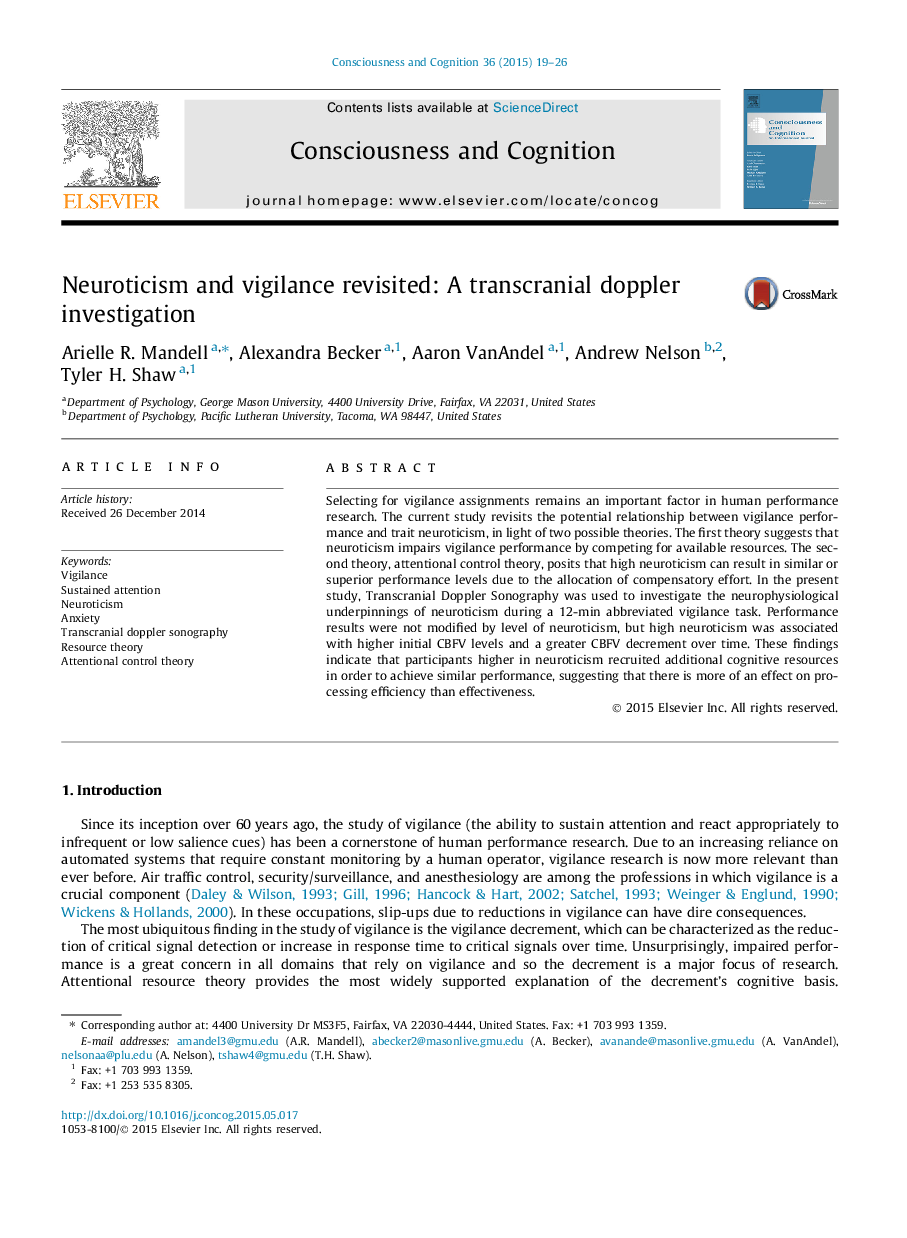| Article ID | Journal | Published Year | Pages | File Type |
|---|---|---|---|---|
| 7289006 | Consciousness and Cognition | 2015 | 8 Pages |
Abstract
Selecting for vigilance assignments remains an important factor in human performance research. The current study revisits the potential relationship between vigilance performance and trait neuroticism, in light of two possible theories. The first theory suggests that neuroticism impairs vigilance performance by competing for available resources. The second theory, attentional control theory, posits that high neuroticism can result in similar or superior performance levels due to the allocation of compensatory effort. In the present study, Transcranial Doppler Sonography was used to investigate the neurophysiological underpinnings of neuroticism during a 12-min abbreviated vigilance task. Performance results were not modified by level of neuroticism, but high neuroticism was associated with higher initial CBFV levels and a greater CBFV decrement over time. These findings indicate that participants higher in neuroticism recruited additional cognitive resources in order to achieve similar performance, suggesting that there is more of an effect on processing efficiency than effectiveness.
Keywords
Related Topics
Life Sciences
Neuroscience
Cognitive Neuroscience
Authors
Arielle R. Mandell, Alexandra Becker, Aaron VanAndel, Andrew Nelson, Tyler H. Shaw,
